Donald TRUMP - U.S. President

➡️ Donald Trump U.S. President Critical Analysis
On November 5, 2024 Americans voted for the return of Republican Donald Trump in what will be his second term of presidency. Find more on ➡️ Trump’s first term here.
Jump straight to our extensive guide ➡️ Donald Trump – U.S. President
➡️ Explore our categories on -
-
Trump's cabinet picks
-
New policies for Trump 2.0
-
Opposition to his second term
-
Trump's relationship with Putin and the Ukraine War
-
Trump's relationship with China, including trade tariffs and taxes
-
Trump and the United Nations including his exit from WHO and the Paris Climate Agreement
-
Trump's immigration agenda
-
Trump's relationship with Israel and the War on Gaza
-
Must-read articles, important videos, his criminal charges and indictment, the capitol insurrection, project 2025, Trump as a threat to democracy, racism and hate speech, and a guide to the new Vice President JD Vance.
Why did Americans Vote for Trump?
In a profound wake-up call for the Democratic party, the Republicans still won despite a campaign coated in controversy, racism, hate, misogyny, and fascism. Election success was far from a landslide, but the GOP did manage to win all seven swing states, gain control of the Senate, and the House.
Voter turnout was 64%, average for the U.S. The number one reason Trump voters gave were his promises on the economy - one which he emphasised relentlessly during his campaign. Trump's political comeback involved surviving an assassination attempt, and managing to avoid conviction for a 34-count felony charge (amongst other criminal charges). GOP superPACs received record funding with $522 million donated, the second largest donor of which was X owner Elon Musk.

Voters felt like the Democrats had little to offer, confirmed by low voter turn outs in blue states. Harris faced an uphill battle from the very start, caused by Biden’s late withdrawal, which left her little option but to build on the former president's campaign and strategies. Biden's plunging approval rating particularly on inflation and immigration, was inherited by Harris as his vice-president.
Her radio silence for much of her campaign left voters unclear on many of her stances on important issues such as Gaza and the economy. She also failed to explain her reasons for abandoning progressive positions on healthcare, climate change, and crime, leaving her with no obvious political profile, and further clearing the way for Trump's victory.
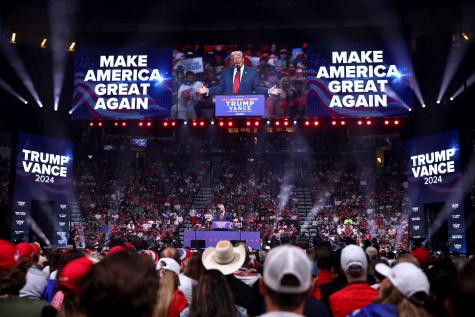
What Is Trump Planning In His Second Term?
Trump has vowed to protect the U.S. economy by imposing a drastic 20% tariff on most imported goods, as well as up to 60% on goods from China. The aim is to promote US manufacturing companies and reduce import dependency.
Critics warn that these measures would lead to price hikes as increased import costs are passed down to the consumer. In the run-up to his candidacy, Trump promised to fight inflation through both deregulation and a reduction in government spending.
As expected, Trump's energy policy will focus on the expansion of fossil fuel extraction. By allowing new oil drilling and further development of the gas industry, he wants to make the USA a globally dominant energy producer again - true to his motto "drill, baby drill".
To the despair of climate experts and environmentalists, he plans withdraw the U.S. from the Paris Climate Agreement again and largely remove the environmental regulations put in place in recent years. This short-sighted vision ignores the increasing frequency of natural disasters and the financial costs of climate change causing further damage to America's economy and infrastructure.

Immigration policy played a central role in Trump's election campaign. He has announced that he will reintroduce the Remain in Mexico policy, which forces migrants to stay in Mexico while their asylum applications are processed. He also plans to exclude people living in the USA without a valid residence permit from social benefits and threatens to tighten deportation policies. He has promised to implement the "largest deportation operation in history".
Trump's foreign policy embraces the America First principle. He plans to minimise multilateral obligations and intensify economic competition with China. He plans on implementing high tariffs to strengthen US industry and redefine trade relations.
Regarding the Ukraine war, Trump has vowed to end the conflict between Russia and Ukraine immediately, but his strategy remains unclear. On Gaza, Trump's position is strongly pro-Israel, supporting Israel's right to defend itself - by any means necessary.
His position on NATO remains critical. He demands that NATO countries must start contributing their full share towards common security, rather than relying on the U.S. to prop up the alliance and behave as the world's policeman.
In the healthcare sector, Trump plans on further dismantling the Affordable Care Act and transferring more responsibility to individual states. He wants abortion regulations to remain limited to the law of states, and rejects nationwide protection for women's reproductive rights.
On education, Trump supports the expansion of private schools and the diversion of public funds to private educational institutions. These measures will weaken public education and further deepen social inequalities.
Trump is pro death penalty, and has clearly spoken out in favour of retaining it, considering it an important tool in the fight against crime. When it comes to gun laws, Trump actively promotes gun ownership. He will protect personal gun rights, and reject calls for stricter controls.
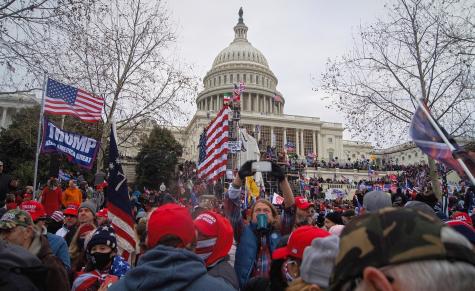
Trump as a Threat to Democracy
Trump's first term (2017-2021) was marked by an unprecedented attack on democracy. He was critical of the press, labelling critical reporters "enemies of the people" and has repeatedly stated that he wants to "hold his political opponents accountable". Under his "Agenda 47", he has hinted at plans to take a tougher stance against his critics and use his political power to control media outlets that portray him or his party negatively. Both freedom of expression and freedom of the press could be compromised if he establishes mechanisms to restrict opposition voices and critical reporting.
To this day, Trump claims that the 2020 presidential election was falsified by massive electoral fraud, despite no clear proof ever bring presented. Numerous recounts and checks, including a large-scale investigation by the Ministry of Justice, revealed no evidence of large-scale electoral interference.
Trump's refusal to acknowledge the election defeat led to the storming of the Capitol on January 6, 2021, when supporters took his call to fight against the allegedly stolen election literally. The attack resulted in five deaths and more than 140 injuries. The insurrection was the first time in U.S. history that a sitting president challenged the separation of powers and trust in the electoral system.
Americans have once again chosen Trump to be their president.
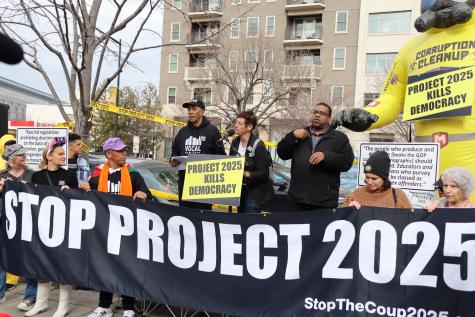
The basis of Trump’s political agenda is ➡️ Project 2025 - developed by many of Trump's former aides and allies, is intended to radically reshape and tighten control over federal institutions and administrative apparatus in Washington. In his words, a "cleanse" of the US government, including massive restructuring and the laying off tens of thousands of federal employees, to be replaced by Trump loyalists.
Describing the criminal investigations against himself as "politically corrupt", Trump has threatened to create a new judiciary that is "loyal and just". Any attempt to interfere with the independence of the judiciary process is a clear threat to both democracy and justice.
Trump's approach towards the military and defence is contradictory. On one hand, he plans to restrict military operations and remove the U.S. from "endless wars", and on the other, he has announced an aggressive stance towards countries such as China and Iran. His critical attitude towards traditional alliances, especially NATO, could lead to a loss of trust among allies and give authoritarian states more room for manoeuvre.
The U.S. withdrawal from international security obligations could lead to Europe forming an independent defence and foreign policy. This has the potential to weaken Europe's security, especially against Russia and China.
Trump's unpredictable relationships with authoritarian leaders such as Putin, Xi Jinping, and Kim Jong-un could lead to increased risks of conflict, especially in Eastern Europe and East Asia.
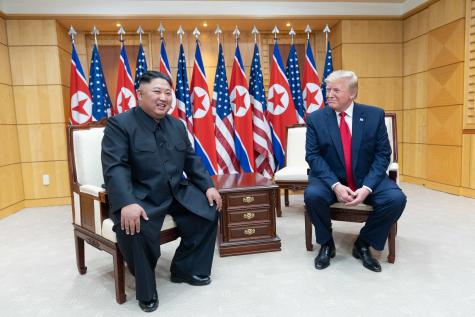
International cooperation has suffered historically under Trump. In his first term, he withdrew the US from key agreements such as the Paris Climate Agreement and the Iran nuclear deal, undermining international efforts to solve global problems. In the event of large scale crises requiring unity and global cooperation, Trump may be less willing to combine resources and knowledge with other nations.
Driven by rising prices and global crises, more trust is being placed in right-wing populists who sell themselves as the voice of the people. In reality, they weaken institutions, attack independent media, and disregard human rights.
Authoritarian structures are on the rise all over the world. Education, strong democratic institutions, an independent media, and a well-founded civil society are needed.
Trump’s First Term as President - How America Changed
Trump's domestic policy, much like his most recent campaign, was centred on the American economy and the dismantling of government regulations. His 2017 Tax Cuts and Jobs Act reduced corporate tax rates from 35% to 21%. While this initially boosted growth and increased gross domestic product, economists criticised the notable benefits were enjoyed predominantly by large companies and the wealthy. Long-term economic benefits for the middle and working class failed to materialise.
During his tenure, national debt increased with the budget deficit rising by around 50% from $665 billion in 2017, to over $1 trillion in 2019. His criticism of the Affordable Care Act (Obamacare) was aimed at complete abolition, but with no offer of an alternative, comprehensive solution.
His underestimation and mismanagement of the coronavirus pandemic was criticised heavily. He repeatedly ignored scientific advice and by the end of his term in January 2021, the US had recorded over 400,000 deaths related to COVID-19. Infection numbers stood at around 24 million cases – far higher than in other Western countries. The pandemic caused serious economic damage with peak unemployment reaching 14%.
Trump’s restrictive and inhumane migration policy emphasised isolation and was sold to citizens under the guise of American job protection. He began the construction of the Trump Wall to create an imposing barrier on the U.S. - Mexico border. The wall is a disaster for the environment and for communities living within its wake.
Trump's highly discriminatory Muslim and refugee ban blocked travel and settlement from seven predominantly Muslim countries. As part of his zero-tolerance policy on migration, at least 5,500 children were separated from their parents at the border in 2018 alone. This practice was later restricted by court orders, but it had long-term psychological effects on the affected families.
His criminalisation of migration promoted racism by portraying immigrants, especially those from Latin America, as villains, and a threat to the American way of life. His speeches were riddled with racist stereotypes, conspiracy theories and fake news which were presented as facts. He openly stirred up hatred against refugees. This rhetoric divides American society and leads to polarisation in the public discourse about those fleeing war, persecution, and poverty.
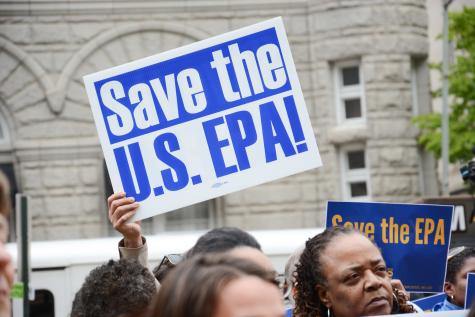
Trump's position on climate change was clear from day one. He publicly doubted climate science and withdrew the U.S. from the Paris Climate Agreement in 2017. Under his administration, more than 100 environmental regulations were weakened or completely abolished, especially in the fossil fuel sector. Trump also campaigned for the approval of the controversial Keystone XL pipeline.
The America First doctrine aimed to move the U.S. away from multilateral agreements and international organisations. He imposed high tariffs on Chinese goods and started a trade war, but it failed to reduce the trade deficit with China. In 2018, the bilateral trade deficit reached $419 billion. Trump's diplomatic departure from multilateral treaties and alliances such as NATO led to tensions with long-standing allies, and weakened trust in the U.S. as a reliable partner on the international stage.
Who is Donald Trump?
Born to a wealthy family in New York in 1946, Trump began his career in the real estate business. With the support and financing of his father he built his own real estate empire and hotel chain. Despite his privileged background, Trump likes to present himself as a self-made millionaire.
His business expanded rapidly in the 1980s with prestigious projects such as the Trump Tower, he also increasingly appeared as a public figure and gained visibility in the media. A series of insolvencies however, led to him filing for bankruptcy in the 1990s. This did not stop him from gaining notoriety on the reality show The Apprentice which eventually carried him into the political world.
His candidacy for the Republican Party in 2016 saw the start of his America First campaign which took a hard line against illegal immigration, trade protectionism, and criticism of political elites in Washington. Trump positioned himself as an outsider who wanted to drain the swamp and return power to the people, this strategy proved to be popular and thus began his path to presidency.
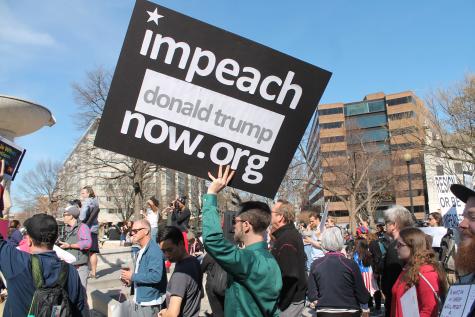
Criminal Investigations Against Trump
After his election victory in 2016, claims of Russian interference in favour of Trump led to a lengthy investigation. Although Trump himself was not directly accused of conspiring with Russia, the investigation raised critical questions about his respect for democratic institutions.
Part of the investigation sought to decide whether Trump had tried to obstruct the justice system. The verdict remained ambiguous, but some of Trump's associates and advisers were convicted of various offenses, including false testimony and tax offenses. In the aftermath, Trump also faced several legal proceedings that included both civil and criminal charges. Trump became the first U.S. president to face serious legal problems, in part because the US Supreme Court ruled that former presidents are protected from prosecution for acts in office.
Trump’s most well-known civil proceedings concern the defamation and sexual abuse allegations of Jean Carroll. In this case, a New York court ruled in favour of Carroll in May 2023, and sentenced Trump to pay $5 million. In addition, Trump is in entangled in a civil lawsuit for alleged fraud within The Trump Organization concerning claims that he greatly inflated the value of real estate in order to obtain loans at more favourable conditions.
Several serious criminal proceedings against Trump are pending, some of which have yet to be heard in court. These proceedings include allegations of election interference in Georgia and the handling of secret government documents after his term in office. In connection with the incidents on January 6, 2021, he is also charged with conspiracy to obstruct an official trial.
So far, Trump has not been convicted in any of these criminal proceedings. The case on his handling of secret documents was conveniently dismissed by a judge appointed by Trump himself, and the proceedings in Georgia are still ongoing. As the new U.S. president however, Trump will most likely have all these charges dropped.

Better World Info on Four More Years of Trump
Do we believe that Trump will Make America Great Again, no probably not. But could Harris have done any better? Both choices were weak. Neither side pledged to end the war on Gaza, to stop funnelling weapons into war zones, to end unabated military budget bloating, to end nuclear proliferation, to become a leader in the climate movement, to dramatically cut fossil fuel production, to end economic inequality, and to dedicate serious money into healthcare, education, and social services.
Are we dreaming? Most likely. But until the Democrats can offer a progressive alternative, voters are stuck between a rock and a hard place. Many world leaders offered muted congratulations (mostly EU), some commented late, and other right-wing nations were the first to celebrate Trump's victory.
Israel’s Netanyahu claimed it to be one of "history's greatest comebacks", Bolsonaro labelled Trump a “true warrior”, and Hungary’s Orban delighted at the result declaring "It's in the bag!"
Trump of course succeeded in securing votes from his traditionally older, white supporters, but shifts among key demographic groups is what helped to seal his win. Latino men leaned Republican for the first time, he also proved more popular with both young voters and male voters. A clear gender-based divide was present, particularly with Hispanics. He also made narrow gains with Black voters.
Set for inauguration on January 2nd 2025, we expect Trump to take office all gun's blazing. Stay tuned for updates on the important issues that matter the most.
“Today’s loss is tomorrow’s fuel” - March for Our Lives
Author: Rachael Mellor 17.11.24 based on the German article by Maximilian Stark 06.11.24 licensed under CC BY-NC-SA 4.0
For more information on Trump see below ⬇️
Info on Donald TRUMP - U.S. President
- Trump's Cabinet[256]
- Trump's Policies[372]
- Trump Opposition[217]
- Trump's Inauguration[50]
- Trump and Putin[223]
- Trump and China[173]
- Trump and United Nations[118]
- Trump and Immigration[230]
- Trump and Israel[154]